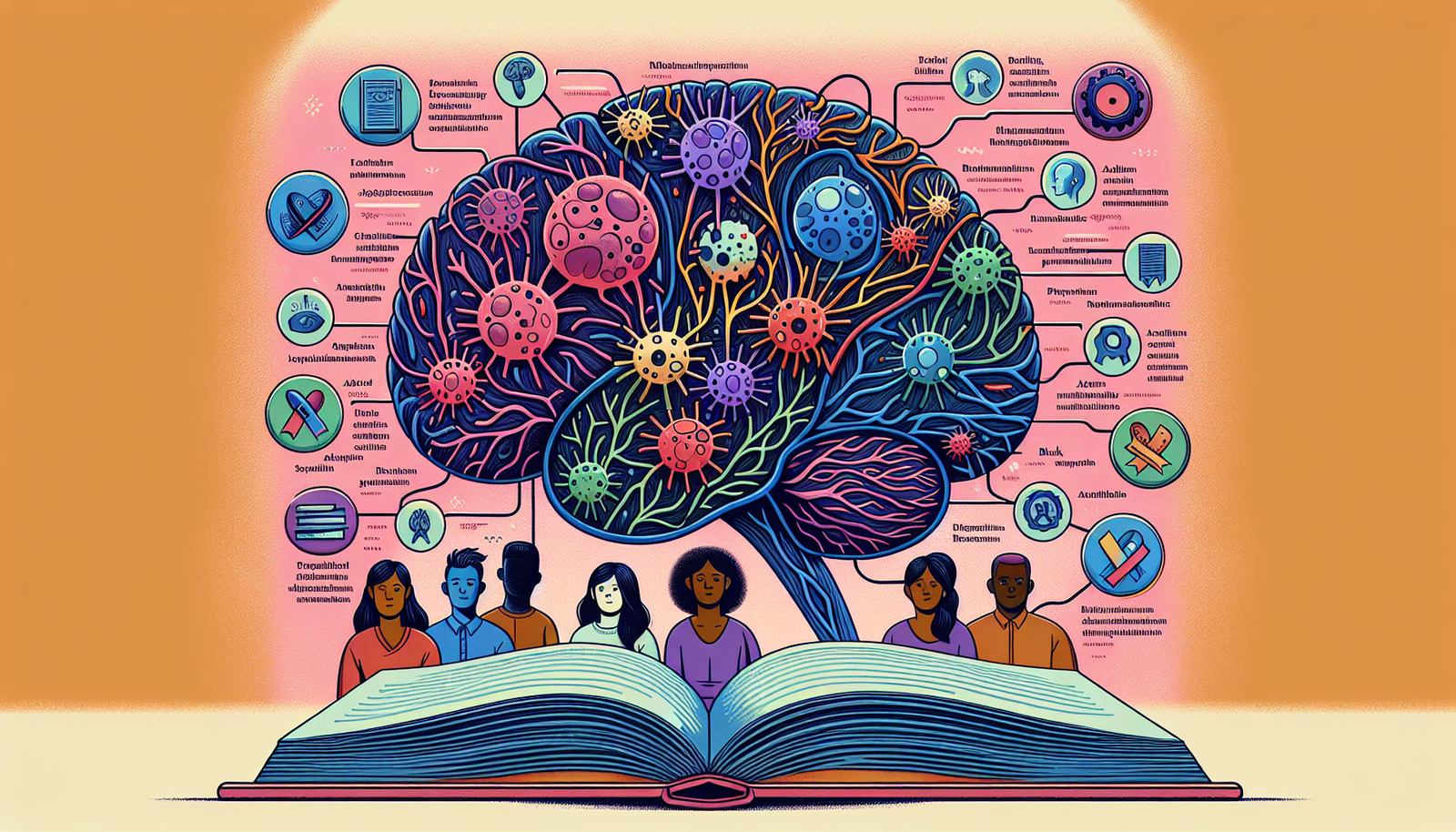The ever-growing field of mental health has become an area of increasing concern and interest for individuals seeking comprehensive information on their overall well-being. In our website, we strive to provide an in-depth exploration of mental health disorders, aiming to enhance understanding and awareness. By shedding light on these complex conditions, we hope to empower readers to navigate their own mental health journeys with confidence and knowledge.
Understanding Mental Health Disorders
Mental health is an essential aspect of overall well-being, encompassing emotional, psychological, and social factors. It involves how individuals think, feel, and act, as well as their ability to cope with stress, make decisions, and form relationships. However, just like physical health, mental health can be affected by various factors, leading to the development of mental health disorders.
Defining Mental Health
Mental health refers to the state of a person’s emotional and psychological well-being. It is a complex and dynamic concept that varies from one individual to another. Having good mental health means being able to manage normal stress, maintain healthy relationships, and make balanced decisions. On the other hand, mental health disorders occur when there are significant disturbances in thoughts, emotions, and behaviors that impair one’s ability to function effectively.

Types of Mental Health Disorders
Mental health disorders are vast and encompass a wide range of conditions that can affect people of all ages and backgrounds. Some common mental health disorders include anxiety disorders, mood disorders (such as depression and bipolar disorder), eating disorders, personality disorders, and schizophrenia. Each disorder has distinct characteristics and symptoms, but they all impact an individual’s daily life and overall well-being.
Common Symptoms of Mental Health Disorders
The symptoms experienced by individuals with mental health disorders can vary widely depending on the specific condition. However, there are some common signs that may indicate the presence of a mental health disorder. These include persistent sadness, excessive worry or fear, sudden changes in mood or behavior, social withdrawal, difficulty concentrating or making decisions, changes in appetite or sleep patterns, and thoughts of self-harm or suicide. It is important to recognize these symptoms and seek help when they persist or interfere with daily functioning.

Causes of Mental Health Disorders
The causes of mental health disorders are multifaceted and can be influenced by various factors. Biological factors, such as genetics and brain chemistry, play a significant role in the development of certain disorders. Additionally, environmental factors, including childhood trauma, chronic stress, and exposure to violence or abuse, can increase the risk of developing mental health disorders. Furthermore, a combination of genetic, biological, and environmental factors often contributes to the onset of these disorders.
The Impact of Stigma on Mental Health
Stigma surrounding mental health is still prevalent in many societies, contributing to the negative perception and discrimination against individuals with mental health disorders. This stigma creates barriers to seeking help and support, leading to individuals suffering in silence and avoiding necessary treatment. Stigmatizing attitudes can isolate individuals, exacerbating their symptoms and hindering their recovery and overall well-being.
Diagnosing Mental Health Disorders
The diagnosis of mental health disorders involves a comprehensive assessment conducted by trained healthcare professionals. This assessment typically includes an evaluation of symptoms, medical history, and a psychological evaluation. Healthcare professionals use standardized diagnostic criteria, such as the Diagnostic and Statistical Manual of Mental Disorders (DSM-5), to determine the presence of a mental health disorder accurately. Proper diagnosis is crucial for determining appropriate treatment options and support.
Treatment Options for Mental Health Disorders
The treatment of mental health disorders aims to alleviate symptoms, improve quality of life, and promote recovery. Treatment options vary depending on the specific disorder and the individual’s needs. Common interventions include medication, psychotherapy, counseling, and support from mental health professionals. In some cases, a combination of therapy and medication may be recommended. It is important to remember that treatment plans should be tailored to each individual’s unique circumstances and preferences.
Preventing Mental Health Disorders
While it may not always be possible to prevent mental health disorders, there are several steps individuals can take to promote positive mental health and reduce the risk of developing certain conditions. Maintaining a healthy lifestyle, including regular physical activity, balanced diet, and sufficient sleep, can contribute to overall well-being. Building strong relationships and support networks, managing stress effectively, and seeking help early when experiencing difficulties can also be helpful in preventing the onset of mental health disorders.
Supporting a Loved One with a Mental Health Disorder
Supporting a loved one with a mental health disorder requires empathy, understanding, and patience. It is essential to avoid judgment or criticism and instead offer unconditional support and acceptance. Educating oneself about the specific disorder and its symptoms can help in providing appropriate support. Encouraging the individual to seek professional help, connecting them with resources and support groups, and actively listening to them can make a significant difference in their journey towards recovery and well-being.
Promoting Mental Health and Well-being
Promoting mental health and well-being is a collective responsibility that involves individuals, communities, organizations, and governments. It is essential to reduce the stigma surrounding mental health and create inclusive environments where individuals feel comfortable seeking help and support. Implementing mental health promotion programs, raising awareness, and providing accessible and affordable mental health services are crucial steps towards promoting positive mental health and well-being for all.

